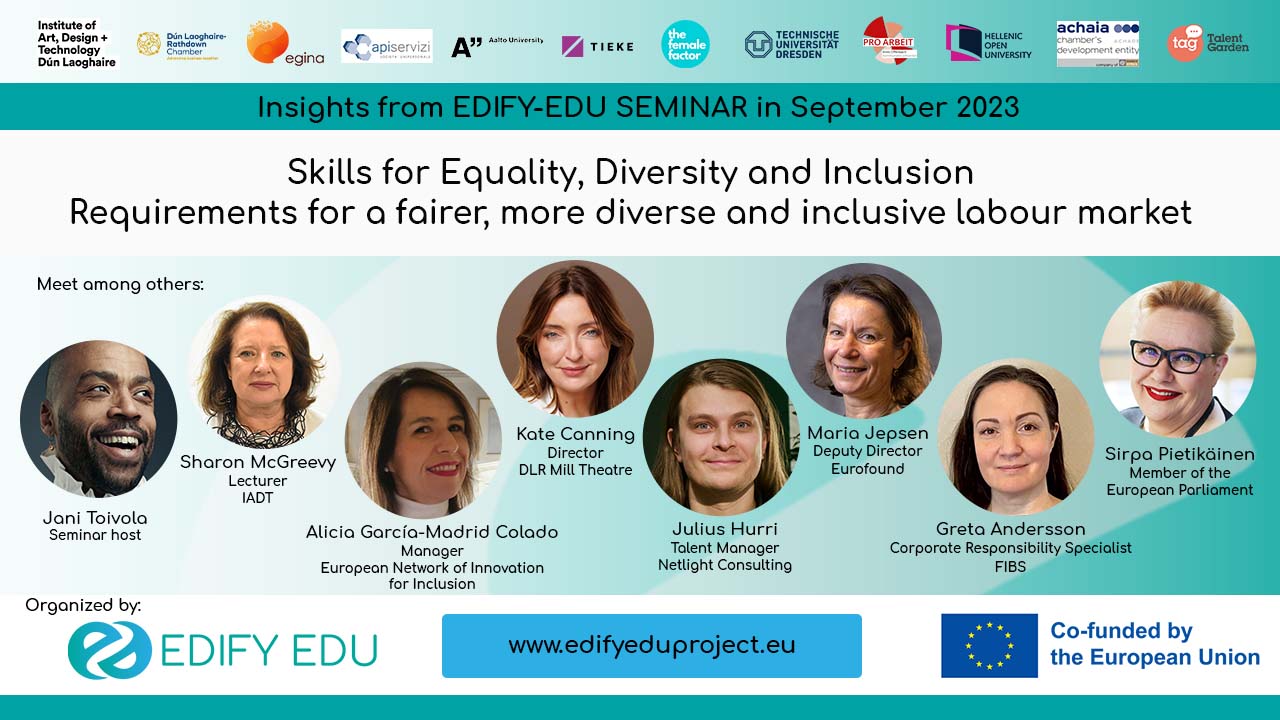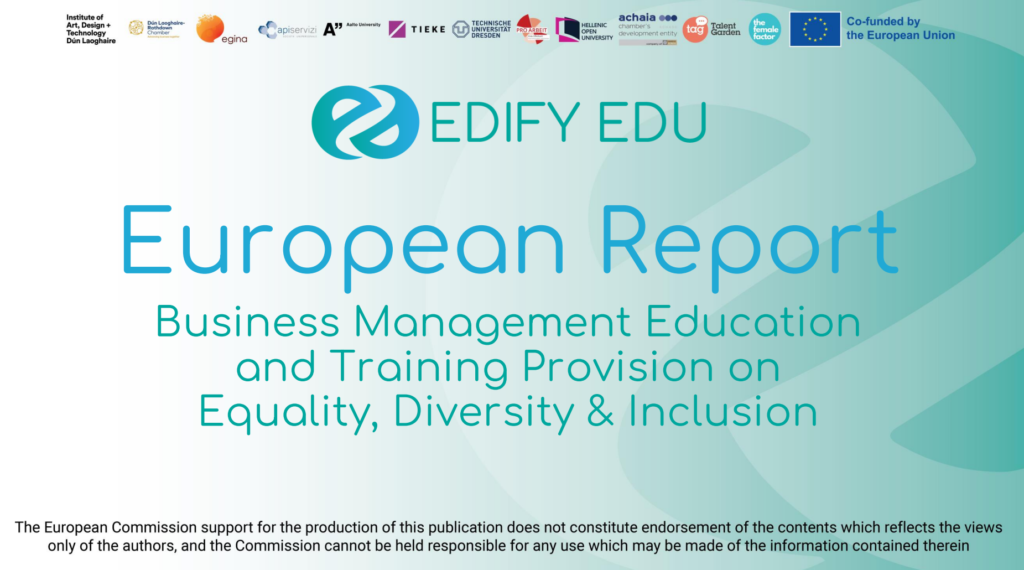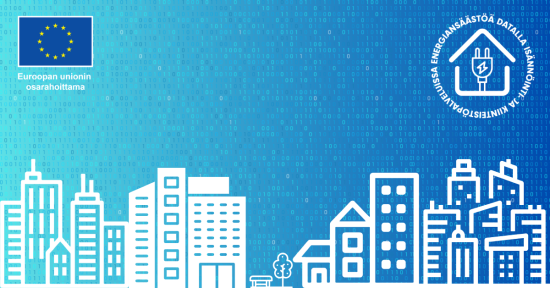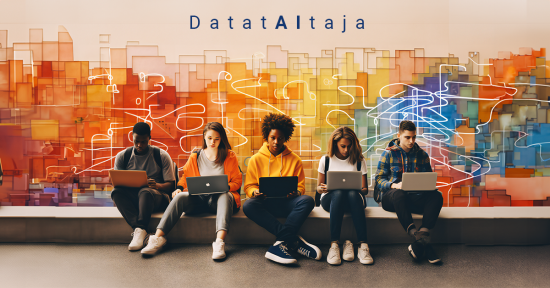From Classroom to Boardroom
Josephine Browne from Institute of Art, Design + Technology (IADT) kicked off the seminar by delving into the historical background of business management, highlighting its roots in Taylorism and scientific management. These early management paradigms prioritized discipline and efficiency but largely neglected the principles of equality, diversity, and inclusion (EDI). Dr Browne’s presentation underscored the absence of EDI in the development of business management and pointed out the slow progress toward gender equality in the workplace, despite over 50 years of EU legislation. She emphasized the need for a cultural shift in integrating EDI themes into leadership and business management education. Browne’s slides in PDF-form can be seen at this link.
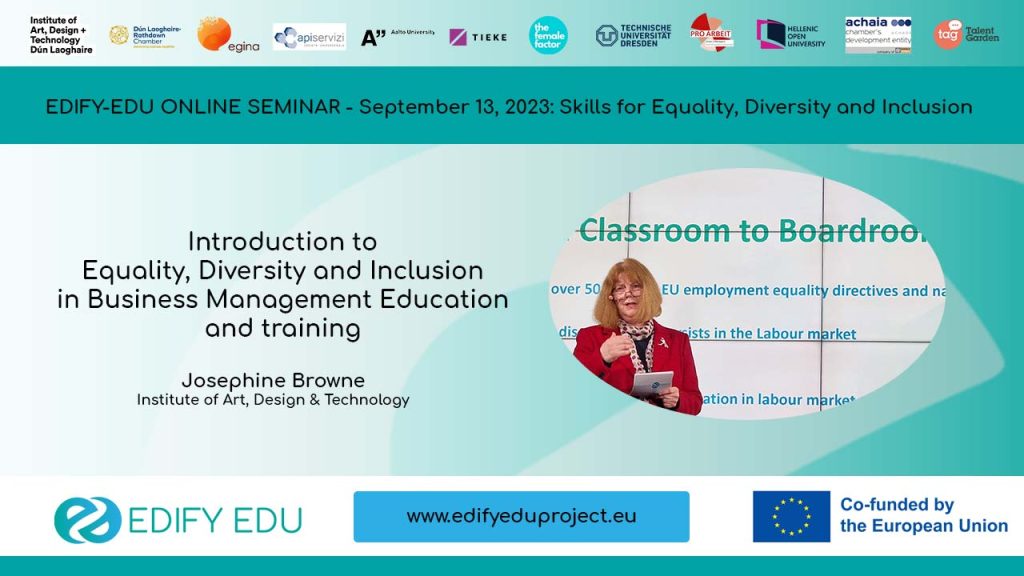
Watch on YouTube
Project Findings on EDI Competences in Business Management Education
Heini Ikävalko from Aalto University and Audrey Stenson from IADT shared the findings of the EDIFY-EDU project’s research that aimed to identify the skills gap in the undergraduate business management education sector regarding competencies on workplace equality, diversity, and inclusion (EDI). They discussed methodologies and research results, highlighting the variations in EDI competences across different European countries. The research called for a greater emphasis on integrating EDI topics into leadership training and development programs.
The European report providing an overview of the history and evolution of undergraduate business management education and analyzing EDI in the curricula can be found on the project website along with the national reports.
Panel Discussion: EDI Competences Across Europe
The panel discussion hosted by Jani Toivola and featuring experts from Finland, Germany, Greece, Ireland, and Italy offered a comparative perspective on EDI competences.
Each country presented its unique challenges and opportunities in achieving equality and inclusion in the labor market. Notable highlights included Italy’s focus on human-centric tech innovation, Greece’s commitment to inclusive employment for migrants and refugees, Finland’s efforts to further address equal pay and anonymous recruiting, Ireland’s push for pay transparency, and Germany’s response to a shortage of skilled workers.
These insights underlined the diverse EDI landscapes in Europe and the need for action in national contexts.
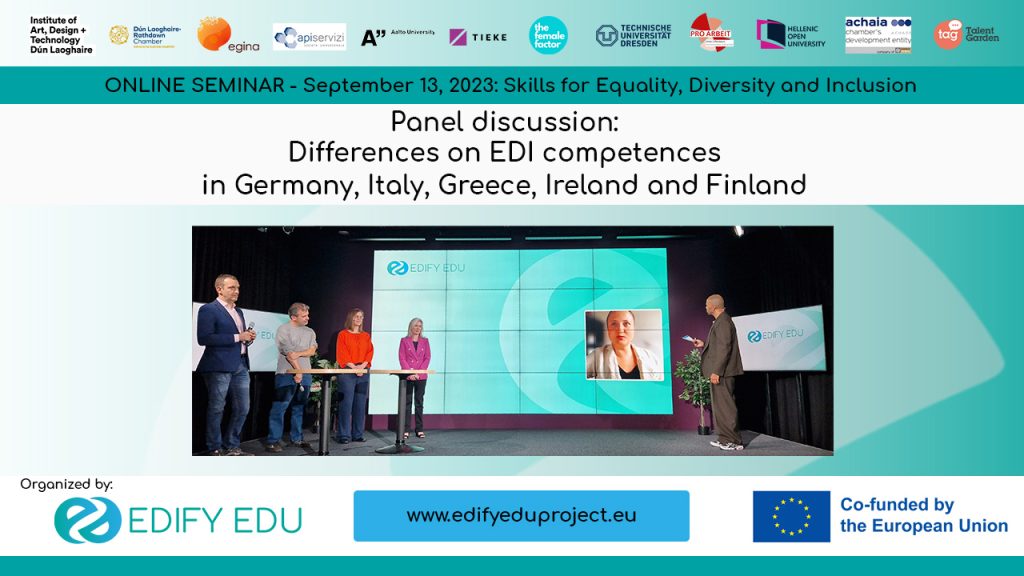
European Research Perspective
Maria Jepsen from the European Foundation for the Improvement of Living and Working Conditions shared a European research perspective. She stressed the need to move beyond mere checkbox exercises and actively engage with EDI.
While the gender gap is narrowing in many countries, it is essential to address job quality, job demands, and resources to ensure inclusive workplaces with good-quality jobs for everybody.
Panel Discussion: Challenges and Solutions
The second panel discussed key challenges and solutions in the realm of EDI competences. Topics included tokenism, the difference between equality and equity, and the need for a holistic and embedded approach in education and training.
The experts emphasized the importance of creating opportunities and an environment where everyone can be themselves. They also tackled the issue of privilege, intersectionality, and the necessity of listening to those whose voices are often unheard.
When today talking about sustainable development, it should be remembered that sustainability does not only concern environmental issues but has a strong social dimension.
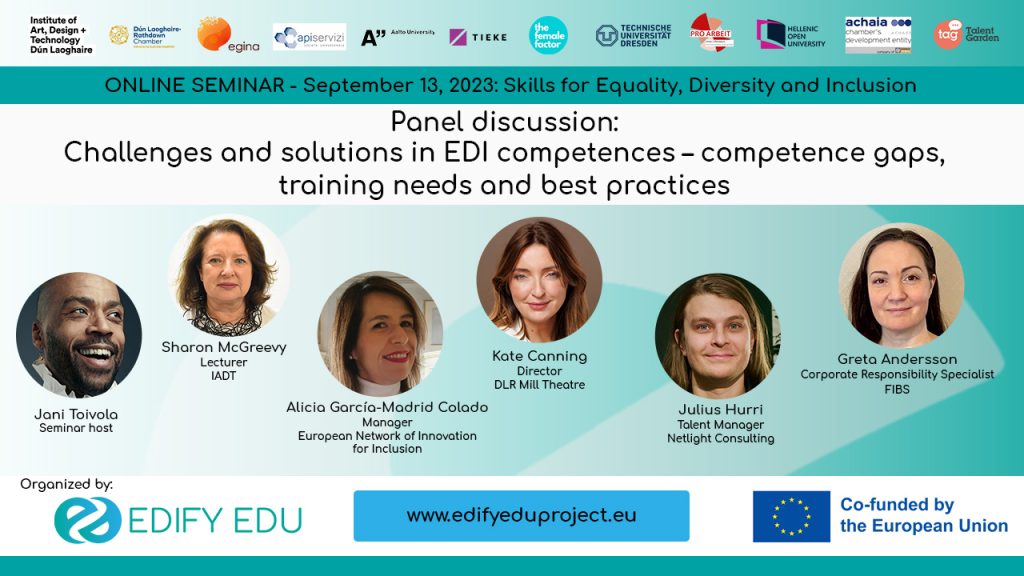
The Way Forward
The seminar’s closing remarks focused on next steps, emphasizing the need for new curricula and live-action initiatives to bridge competence gaps. The event revealed that EDI is not only a matter of legislation but also a cultural shift, necessitating collaboration across academia, businesses, and government institutions. By understanding the challenges, embracing the concept of EDI, and adopting inclusive strategies, we can move closer to creating a labor market that truly embodies equality, diversity, and inclusion.
For the project crew the seminar served as an important platform for learning and sharing ideas as the EDIFY-EDU project continues working with the curriculum and the MOOC (Massive Open Online Course) that is to open in the autumn of 2024.
Track the progress of the project on
Watch the video interviews of existing good practices and development areas
Read the blog post by Sirpa Pietikäinen
European perspective on EDI and the example of Pay Transparency Directive

